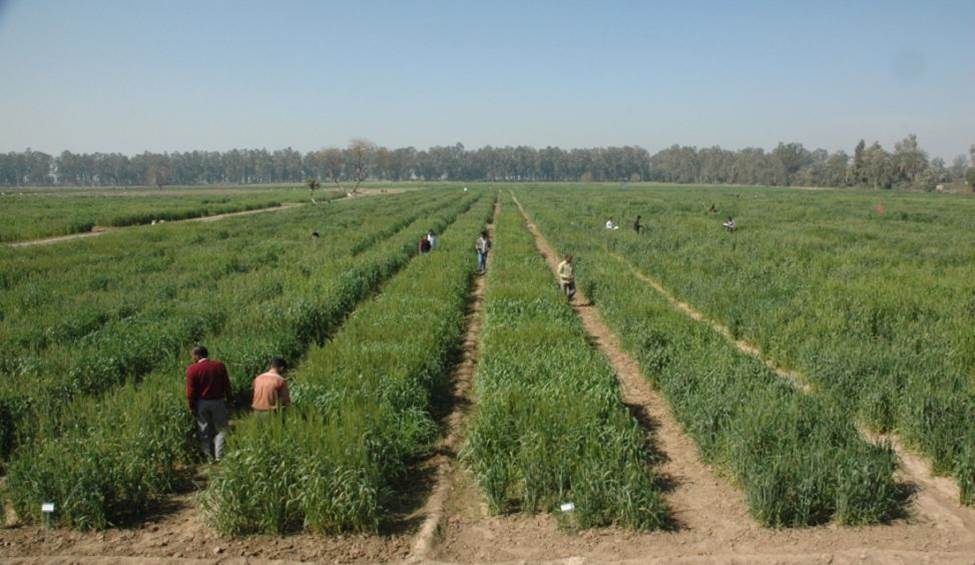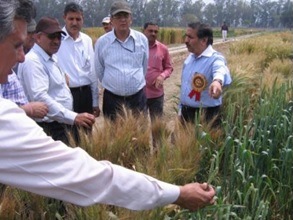Evaluation of wheat germplasm for tolerance to abiotic and biotic stresses
In the present scenario of climate change and global warming, there is great significance of “Terminal Heat Tolerance” in wheat production as sudden environmental temperature fluctuations particularly during later crop growth stage reduces wheat productivity significantly. Due to late harvesting of preceding crop, wheat sowing is generally delayed in Northern India. This exposes the wheat crop to terminal heat stress and shortens the growing period. In addition the short winter season coupled with shift of wheat cultivation to the Central and Southern India makes it imperative to look for genotypes adapted to such conditions. The vast number of wheat germplasm conserved in the National Genebank has not been characterized and evaluated to find their real worth.
NBPGR has taken up characterization and evaluation of wheat germplasm as a mission in collaboration with ICAR institutes and SAUs. Development of core, mini-core and reference collections is the major objectives of this programme.


During Kharif 2011, about 16,000 accessions of wheat germplasm were multiplied in the off-season at IARI Regional Station, Wellington. A field day was also organized there on 21 August 2011 to exhibit the variability in which about 50 wheat researchers participated.
In an unprecedented initiative, NBPGR has sown for the first time entire germplasm of wheat (~22000 accessions) conserved in the National Gene Bank, at three locations in during Rabi 2011-12.
- At CCS HAU, Hisar; 21,822 accessions comprising T. aestivum, T. durum and T. dicoccum, have been sown (during 7-12 Nov 2011 and 1-3 Dec 2011) under optimum conditions in three rows plots in Augmented Block Design with eight national checks (Kharchia-65, Raj-3765, DBW-17, C-306, DDK1025, DDK1029, UAS-415, DWR 1006) for the respective species. A total of 32 agro-morphological characters are recorded for development of a core-set to facilitate the utilization of wheat germplasm in wheat breeding programme.
- At NBPGR, Issapur Farm, two sets of wheat germplasm, first set of 21,445 accessions under normal sowing and a second set of 21,258 under late sowing have been planted in single row plots in augmented block design with eight national checks for the respective species. A total of 18 agro-morphological characters are being recorded to screen the wheat germplasm against terminal heat tolerance.
- At IARI Regional Station, Wellington a set of 20,660 accessions of wheat germplasm has been sown (11- 22 Nov 2011) in Augmented Block Design with 4 susceptible checks to screen against rusts and other major foliar diseases. Data on rust and important foliar diseases have been recorded at two stages.
A Wheat Germplasm Week was organized at NBPGR (Issapur Farm, IARI Farm and PEQN) and CCS-HAU, Hisar from 22-28th March 2012. More than 150 participants from various SAUs, ICAR Institutes and other organizations attended the germplasm week, selected the material of their choice and placed indents.